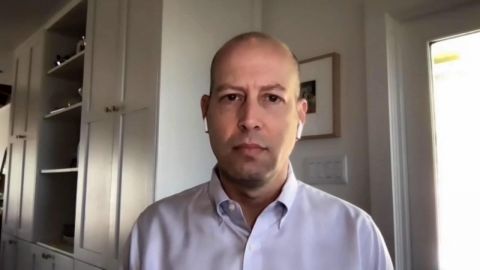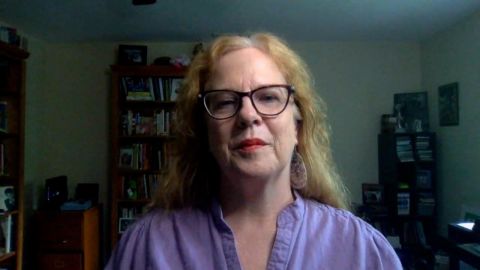Read Transcript EXPAND
BIANNA GOLODRYGA: Would you say that Bob Dylan has reinvented himself or the new generations are just attracted to him?
ANN POWERS, CRITIC, NPR MUSIC: You know, it’s so funny, Brianna, because 20 years ago I wrote a piece about Bob Dylan that asked the question, who is the new Bob Dylan? It’s something constantly asked about him. You know, what artist sort of inherits this mantle? And I concluded then that he is always the new Bob Dylan. Dylan himself. And even now, in 2020, 2021, in these years, he’s still putting out albums. He will tour again, I believe, even into his 80s. And he continues to refine and put his persona on its end, you know, like change it all the time. Most recently, he is acting as a living archive in a sense. His songs are packed with references. His last album had a single called “Murder Most Foul” that had 70 references to other songs in it. And he is enjoying being his own archive.
GOLODRYGA: And in terms of being called voice of a generation, I mean, he addressed this too, because this is something that he was labeled in 1962, and it sort of stuck so many years on. I believe we have a soundbite of him talking about this.
(BEGIN VIDEO CLIP)
BOB DYLAN: Tommy, can you hear me? I’m the Acid Queen. I’m riding in a long, black Lincoln limousine. Riding in the backseat next to my wife. Heading straight on in to the afterlife.
(END VIDEO CLIP)
GOLODRYGA: So, I was wrong. I was actually going to just read from an interview that he gave to NPR about that label, being called the voice of a generation. We’ll come back to that. That was my mistake. But let’s talk about what we just heard because this was his most recent album, “Rough and Rowdy Ways.” It hit number one on Billboard Artist 100 Chart. And this single, it’s 17 minutes long and it’s an exploration of JFK’s assassination, and it invokes so many other cultural figures just in those few lines. Can you talk to us a little about that?
POWERS: Yes. As I just mentioned, “Murder Most Foul” has at least 70 references to other songs, there are references to historical figures. My colleague at NPR Music, Bob Biolen, and I went through and documented all the songs. And at some point, we actually just had to stop because there were so many. And as I said, I think this is Dylan being his own living archive and wanting so much to be a channel for culture, which, you know, you could say is in some ways problematic. I mean, Bob Dylan is, you know, a straight white male and he’s expressing his own identity, but he is trying to be an open book and to kind of represent and oracularly offer his vision of what culture and history means.
About This Episode EXPAND
Over the weekend, many Gazans got their first real look at the devastation brought by the 11 days of bombardments. And now begins the daunting, familiar task of rebuilding.
LEARN MORE



